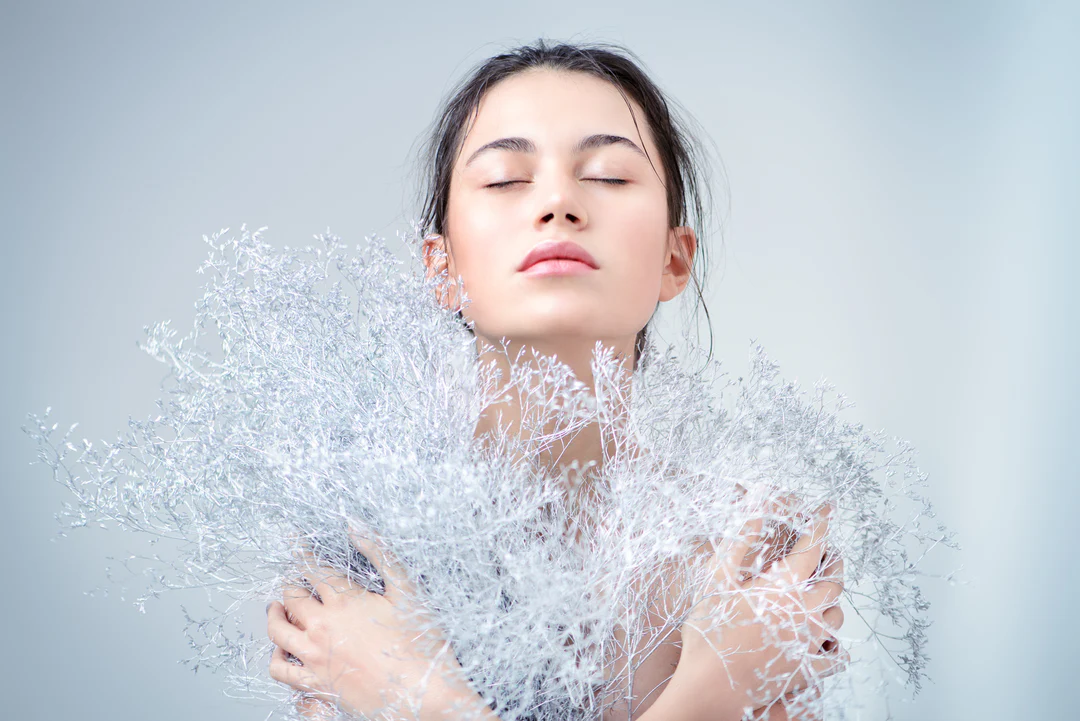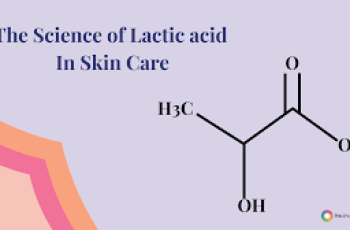How to get rid of pimples on your face?
Nothing is more frustrating than realizing you have pimples, especially if you’ve put in the effort and stuck to a good skincare routine with plenty of active ingredients and powerful products. Unfortunately, sometimes breakouts just happen, but now is not the time to hide! We’ll explore various ways to get rid of pimples on your face and even try to figure out why they show up uninvited.
How can you get rid of pimples fast?
There are many methods that claim to get rid of pimples fast, and some are more effective than others. You just have to be careful not to cause permanent damage to your skin. Here are some examples of how to get rid of pimples fast and effectively:
Keep your hands away from your face
Your fingers carry a lot of bacteria, and if you touch your face regularly, that bacteria can get into your pores, which over time can lead to pimples, blackheads, and other blemishes. If you really can’t stop touching your face, just make sure your hands are clean. This limits the amount of bacteria that is transferred from your hands to your skin throughout the day. This also means you should avoid squeezing pimples, even if they look tempting. Popping pimples can also cause skin damage, leading to skin pigmentation and scarring.
Put ice cubes on the pimples
Yes, you read that right, putting ice cubes on pimples can work wonders. If you have a large, red, and painful pimple, take an ice cube, wrap it in a clean cloth, and place the ice cube on the pimple for about 2-3 minutes. If you repeat this throughout the day, you will experience less pain, less redness, and notice less swelling.
Avoid heavy makeup to reduce pimples
It may be tempting to opt for a full coverage foundation and apply it all over your face. However, most of the time, this will cause the skin to look “lumpy,” and you may even notice that pimples will get bigger over time and become visible through any product. Opting for a light tinted moisturizer or CC cream will even out your skin overall. Target pesky pimples with a full coverage concealer, applying a buildable amount onto the blemish using a clean, small brush. This gives you the best coverage that lasts all day while preventing pores from clogging and causing more pimples and breakouts.
Keep your skin clear but not dry
If you have a good skincare routine that includes using cleansers, acid toners, and products rich in active ingredients like salicylic acid, you’re already doing a great job of keeping your skin clear and preventing further breakouts. Be sure to avoid overusing harsh, skin-drying scrubs, toners, or other exfoliating products, as this will only leave your skin very dry and deprived of essential oils and moisture. As your skin increases its sebum production to combat dryness, you’ll also get more rashes on your face.
Here are some options on how to get rid of pimples fast. Although it may not be as fast as you’d like, these methods can be very beneficial to your skin in the long run without further worry of unwanted rashes.
What causes pimples on your face as an adult?
The causes of acne in adults are surprisingly similar to those in teenagers, such as: B. Excess sebum, the natural oils on your skin, and bacteria. You’ll find that all of the hormonal changes usually caused by pregnancy and menstruation can trigger an increase in excess oil. As mentioned earlier, regular skin care will help you keep your rashes under control and prevent further rashes.
If you have dry skin and still have blemishes, regular exfoliation may be good for you. Because over time, a layer of dead skin cells forms on the skin, which can lead to many skin blemishes such as blackheads, pimples, acne, etc.
Other factors such as high stress can also be the cause of acne in adults. The best treatment for this is to combine techniques such as exercise, meditation, and breathing exercises. Using some of these methods, you will see a significant improvement in stress-related acne.
How to get rid of subcutaneous acne overnight?
If you want to get rid of acne overnight and fast, you can follow this simple routine. Of course, keep in mind that depending on the type and size of the acne, it may take a few nights for your complexion to become clear again.
Make sure to completely remove all traces of makeup and care products.
Use a serum that is rich in acne-fighting ingredients such as salicylic acid.
Add retinol to your evening routine if you haven’t already. Retinol is considered very beneficial for the skin, but it needs to be taken with some precautions. If you have any concerns, seek advice from a dermatologist.
Try applying a topical treatment to the problem area. Every product, including tea tree oil, can reduce skin size and redness.
Make sure your pillowcases and bedding are clean to prevent the spread of oil and bacteria.
No matter how tempting it may be, don’t pick or squeeze pimples.
In the morning, gently cleanse your skin with a non-foaming cleanser.
If you plan on wearing makeup, make sure your brushes are clean and the products won’t clog your pores.
This simple routine will dramatically change the appearance of your skin, especially if you use skin-friendly products in the morning, such as: B. Serums with vitamin C and SPF.
I know better than anyone how tempting it is to scrub and cleanse your skin until it finally feels squeaky clean. That “squeaky” feeling is the beginning of a host of problems. To prevent your skin from becoming more blemish-prone due to dryness and dehydration, use light skincare products on your face that don’t contain pore-clogging ingredients. How to improve the overall health and appearance of your complexion.
How to remove spots on men?
On average, male skin is 20% thicker than female skin, and it’s also oilier due to the presence of more hair follicles. Don’t worry, because the procedures and techniques discussed above can be adapted into a men’s skin care routine. There are many brands that offer products for men that contain high levels of active ingredients, all of which help fight breakouts and blemishes.
We hope you found today’s blog post helpful and feel better prepared to tackle those pesky stains. However, if you want to learn more about treating breakouts, check out this article on our website about the best ingredients to fight acne.
DQH Knowledge drop: In your 20s, your skin cell turnover decreases. (Cell turnover is a key component in keeping your skin youthful.) You know what else slows down? Your collagen production. Starting in your 20s, collagen decreases by about 1 percent per year. Should you want to prevent fine lines and wrinkles, start by eliminating behaviors that contribute to premature aging. “If it’s bad for you, it’s bad for your skin,” says dermatologist Michel Somenek.
“Cigarette smoking reduces blood flow to the skin and causes premature wrinkling and a dull skin texture. Making the repeated pursed motion to inhale can also cause smoker’s lines. Alcohol and recreational drugs are toxins for the skin that damage its cellular structure and DNA,” Somenek tells us. “The faster you eliminate vices while you are young, the better chance your skin and body have to recuperate.” Also, adopting an anti-aging routine in your 20s is key. After all, the best offense is a good defense. We spoke to Somenek and experts Joshua Ross and Audrey Kunin to find out more.
Keep reading for the best anti-aging products for your 20s, according to skincare professionals.
Sunscreen
“We all know that the sun is the number one cause of skin aging and starting the prevention in your 20s is very important,” Ross says. “The majority of your sun damage won’t start to appear until you’re in your 30s, so don’t wait until you see it surface or you’ll be behind the curve. Stay ahead of it with a good-quality zinc-based sunscreen worn daily.”
Farmacy Green Defense Daily Mineral Sunscreen
An invisible sunscreen with SPF 30, plus botanical extracts meant to protect skin with tons of antioxidants. Bonus: It’s clean and fine to use under makeup.
Bareminerals Complexion Rescue™ Tinted Moisturizer Broad Spectrum SPF 30
Although we recommend you use your SPF and moisturizer separately, we also understand moments when you don’t have time or energy for that extra step. For those times, this bareMinerals moisturizer is a great thing to have on hand.
Vitamin C Serum
“A great introduction to anti-aging is to start with a vitamin C serum in your morning skincare routine,” Ross says. “It’s a powerful antioxidant that will neutralize free radicals and brighten the skin.” He adds that it’s a great way to counteract the effects of the sun’s harmful rays, which, as previously mentioned, are among the biggest causes of premature aging.
Drunk Elephant C-Firma™ Vitamin C Day Serum
The Drunk Elephant C-Firma is a lightweight serum that promises to give skin a glow by combining the brightening powers of vitamin C with ferulic acid, l-ascorbic acid, and vitamin E. The included sodium hyaluronate is meant to replace hydration loss, so you shouldn’t have to deal with any irritation.
Sunday Riley C.E.O. Rapid Flash Brightening Serum
This potent serum is jam-packed with vitamin C (15 percent, to be exact), which means it’s a potential superstar at both brightening skin and dousing it in antioxidants.
Peptides
Using peptides on your skin has many benefits, says Somenek. “The skin barrier is what defends the body against pollution, UV rays, bacteria, and toxins. It can be damaged by several everyday factors. Using topical peptides aids in building a stronger barrier,” he says. “Peptides comprise elastic fibers, which are a type of protein. These fibers help to make skin appear taut and firm. Peptides can also help repair damaged skin, relieve inflammation, and even out skin tone. Some peptides can kill acne-causing bacteria that is common in 20-somethings.”
Kunin agrees, saying, “Peptides are an excellent entry point for supporting collagen.” She recommends looking for face and eye treatments that contain these collagen-boosting powerhouses.
Charlotte Tilbury Magic Eye Rescue Cream
This Charlotte Tilbury super-emollient eye cream has a base of coconut oil and shea butter (read: it’s incredibly hydrating). Botanicals plus peptides are meant to help reduce dark circles and boost collagen, respectively.
This creamy moisturizer serves up potent collagen-boosting peptides and pycnogenol, and antioxidant-rich vitamin C. “Instead of sitting on top of the skin, peptides penetrate the outer layer so they go deep. The ‘signals’ they send tell the cells to produce elastin and collagen, which are needed for youthful-looking skin,” explains Somenek.
At-Home Peel Pads
Remember that skin cell turnover fiasco we talked about earlier? One way to help support it is by exfoliating. “Exfoliation is important to help keep skin fresh and luminous,” Kunin says. She recommends using at-home peel pads as an easy and effective way to exfoliate.
“The goal in your 20s is to fight the slowing pace of cell turnover. It is wise to use products that gently exfoliate, yet still remove oil and other impurities. Products that have Alpha Hydroxy Acids (AHA) or Beta Hydroxy Acids (BHA) are a good choice.”
According to Somenek, you should only exfoliate two to three times a week. “People of all ages are guilty of over-exfoliating and that can be too much of a good thing,” he says.
Dermadoctor Kakadu C Intensive Vitamin C Peel Pad
A few swipes of this Derma Doctor powerful peel pad promise to leave your skin glowing and smooth, thanks to the seven (yes, seven) types of chemical exfoliants, including AHA and BHA. It also contains vitamin C via Kakadu plum extract for added brightening and antioxidant protection.
KEY INGREDIENTS Kakadu plum extract is sourced from the Kakadu plum, a fruit grown in northern Australia. It contains vitamin C, which restores the skin’s natural barrier, increases collagen production, and soothes irritation.
Dr. Dennis Gross Skincare Alpha Beta® Universal Daily Peel Pads
These are the gold standard of peel pads, with a cult following and over 900 five-star reviews on Sephora. They’re easy to use and contain a blend of anti-aging exfoliating acids.
Emollient Night Cream
“In your 20s, you need to start upping the hydration in your skincare routine. You may have been cautious of over-moisturizing because of acne in your teens, but as you enter your 20s, your skin transitions and becomes drier,” Ross says. “I recommend an emollient night cream added into your evening skincare regimen.”
“Twenty-somethings need to make sure that they are not using creams that will clog their pores and cause excess oil production,” says Somenek. Opt for non-comedogenic products.
Cerave Skin Renewing Night Cream
One great choice is the CeraVe Skin Renewing Night Cream, which is a non-comedogenic night cream that leaves skin soft and glowy. It combines the moisturizing powers of ceramides and hyaluronic acid.
RoC Retinol Correxion Max Hydration Creme
“The best night cream ingredients contain retinol, benzoyl peroxide, and/or salicylic acid or hyaluronic acid. The goal is to moisturize, yet remove excess oil,” says Somenek. This Roc Retinol Correxion cream fits the bill as it contains both hyaluronic acid and retinol so it promises to moisturize while also being non-comedogenic.



